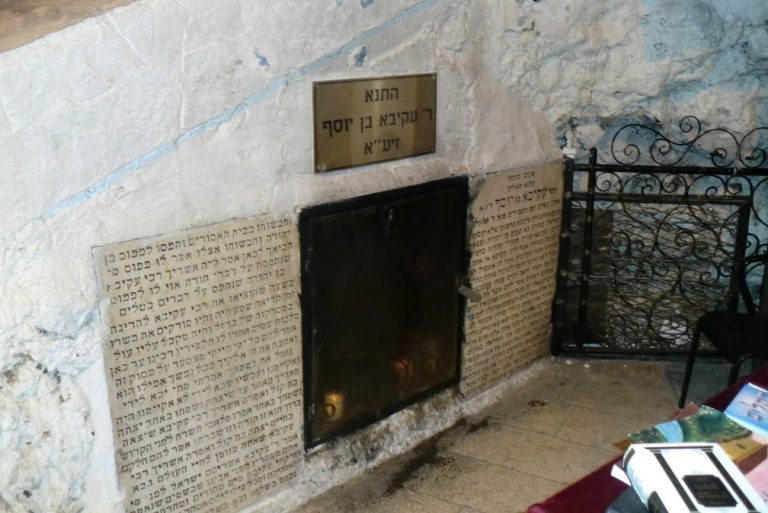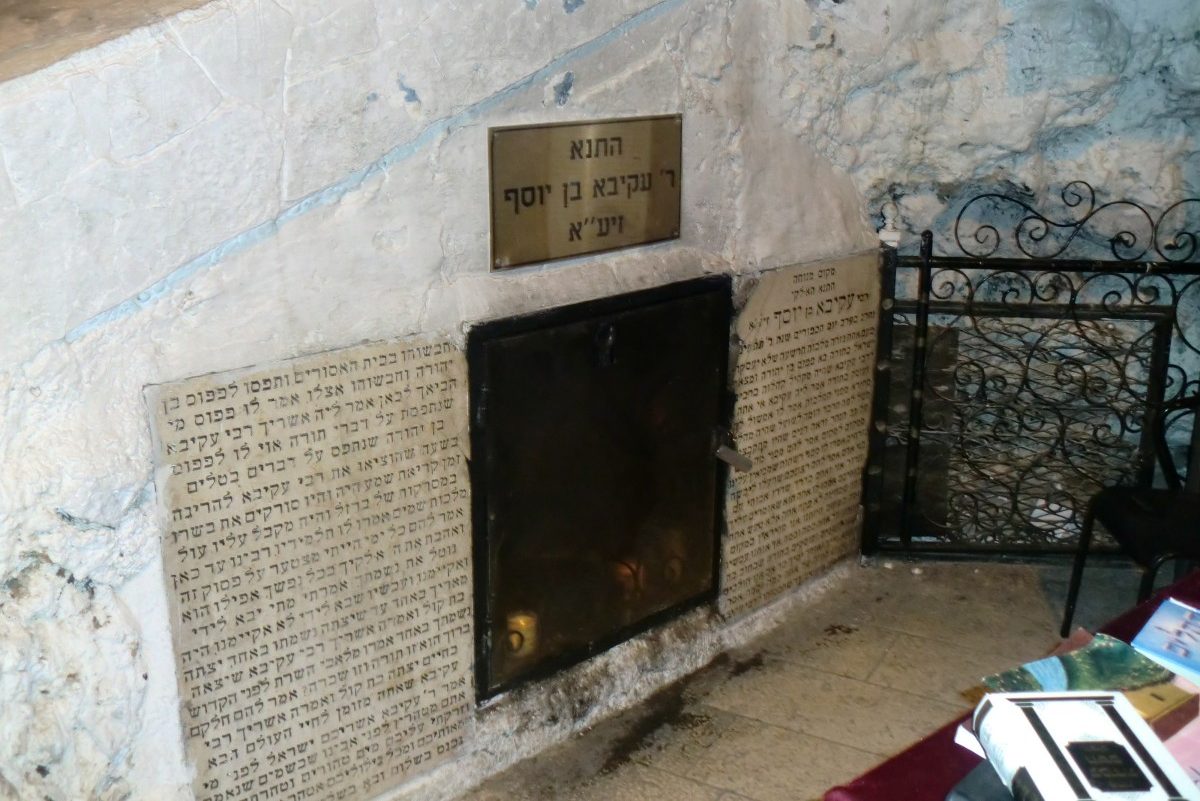 Rabbi Akiva, as a young man, did not know a word of Torah. He worked as a shepherd for “Ben Kalba Savua,” one of the richest men in Yerushalayim. One day, Rachel, the daughter of Ben Kalba Savua, looked at Akiva and was extremely impressed by his modesty and his gentleness with her father’s flocks. She also noticed in him a tremendous potential for accomplishment in Torah, although his potential was at this point totally unrealized.
Rabbi Akiva, as a young man, did not know a word of Torah. He worked as a shepherd for “Ben Kalba Savua,” one of the richest men in Yerushalayim. One day, Rachel, the daughter of Ben Kalba Savua, looked at Akiva and was extremely impressed by his modesty and his gentleness with her father’s flocks. She also noticed in him a tremendous potential for accomplishment in Torah, although his potential was at this point totally unrealized.
Rachel approached the Shepherd Akiva and suggested that they get married. When her father found out about this, he was very upset, because he had envisioned a Torah scholar as a husband for his daughter, rather than an ignorant shepherd. In his anger, he vowed to cut the young couple off financially, leaving them penniless.
One of Rachel’s conditions for marrying Akiva was that he go to a Yeshiva to learn Torah. Even though he sincerely accepted the condition and married Rachel, he initially found it extremely difficult to fulfill it. In fact, while an ignorant shepherd, he had harbored a secret hatred towards Torah scholars
Once, while shepherding his flocks, he gazed into a pool, where he saw a hollowed-out rock resting under a waterfall. He wondered how the rock, one of Nature’s hardest substances, had been hollowed out. When he was told that the water had, over a long period of time, made the drastic change in the rock, he reasoned as follows:
“If a rock, though extremely hard, can be hollowed out by water, how much more so should it be possible for Torah, which is compared to water, to change my heart, which is soft. I will begin to study it, and try to become a Torah scholar.”
Akiva and his son, Yehoshua, went to the same teacher at first. Together they studied the Aleph-Bet, the Hebrew Alphabet. They went on at their own pace, Yehoshua at the pace of a bright child, Akiva analyzing the meaning of each new fact and idea that he learned, deeply and thoroughly. Rachel suggested that Akiva go to a Yeshiva and devote himself full-time, for twelve years, to the study of Torah. Having the permission and encouragement of his wife, Akiva went to study in the Yeshiva of the great Rabbi Eliezer ben Hirkonus.
Years passed. Akiva studied more and more material, in greater and greater depth, but remained silent in the class. When he proposed his first explanation of a difficult point at the Yeshiva, Rabbi Yehoshua ben Chananya, a colleague of Rabbi Eliezer, immediately recognized the depth and profundity of Akiva’s analysis.
As more years passed, Akiva received Semicha, Rabbinic Ordination, and became known as Rabbi Akiva. He opened his own Yeshiva, which began to attract many students. At the end of a dozen years, he returned to Jerusalem, to greet his wife, accompanied by twelve thousand students. As she heard their approach, Rachel came out and, out of great love for Rabbi Akiva, and honor for the Torah, she prostrated herself at his feet. When his students moved to push her away, he restrained them, saying, “All the Torah knowledge that I have, and all the Torah knowledge that you have, are the direct results of this woman’s love of the Torah!”
Ben Kalba Savua, remorseful over how he had mistreated his daughter, went to Rabbi Akiva, whom he did not yet recognize, but of whom he knew only that he was a great Torah scholar, seeking an “opening” for his vow. [Briefly, an “opening” of a vow means that if the circumstances of the vow were such that if the maker of the vow had known about some fact, he would not have made the vow, that is its “opening.”]
When his father-in-law came before him, Rabbi Akiva asked him whether he would have cut off his daughter if he had known that her husband would become a Torah scholar, Ben Kalba Savua answered, “Even for one chapter, one Mishnah, one verse, I would not have done it.” Then Rabbi Akiva revealed his identity.
In his joy, Ben Kalba Savua turned over half of his fortune to his daughter and son-in-law. Rabbi Akiva was now able to fulfill a promise he had made to his wife, to give her a model of Jerusalem made of gold to wear in her hair.
Later, Rabbi Akiva heard Rachel say to her neighbors that she was so happy and proud of her husband’s accomplishments that she would be happy to let him go away for another dozen years, to completely realize his potential. She discussed the matter with Rabbi Akiva, he determined that she would be happy with the arrangement, and he agreed to do as his wife wished. He did that, reached his full measure of greatness, went on to become one of the eternal heroes of the Jewish People, great in Torah, great in love of Hashem, great in “Emunah,” “Belief,” in the Almighty, and great in appreciation of and devotion to his wife. (Masechet Ketubot: 62b-63a)
Sometimes, a person may do Teshuvah for the “wrong” reasons. But there is a principle in the Jewish Tradition, that if a person does a good deed, such as learning Torah, even for the “wrong” reason, he or she will eventually come to do it for the right reason.

